#37 - Be curious, not judgmental. I like that.
Oh Ted Lasso! Be curious. Read rad papers. Measuring curiosity with wikipedia. Curiosity about how we are curious can dictate our moods and our society. I wonder what we want?
Though fictional English Premier League coach, Ted Lasso, wrongfully ascribes the catch phrase “Be curious, not judgmental,” to Walt Whitman, he sticks the landing. For its paucity of words and punch of meaning, it might have well been written by Ernest Hemingway, who too was apocryphally attributed the laurels of having written the shortest short story ever “For sale, baby shoes, never worn.” Side note: what a heartbreaking line which reminds me of:
Regardless, Ted’s mandate resonates. I plan to speak about judgment, too, on how it might be analyzed through the tools of chemical engineering. But for the time being, let us focus on curiosity.
“Sometimes, I do believe there is a Book God who sends the book I need, when I need it, ” writes Maureen Corrigan, of NPR in reviewing a new Billy Collins collection. I do too, Maureen. Once ever so in a while, one is eminently moved upon reading a book about connecting to others, or a paper about behavioral erosion in a rat society or a poem of inconsolable yearning and hope:
Even a series of papers that inspire the development of a new therapeutic technology can leave such an impression that it must be retold (and thus the, as of yet, still incomplete, GOLD series). This is both the substance and the argument of a recent paper entitled Architectural styles of curiosity in global Wikipedia mobile app readership, by Zhou et al. out of the University of Pennsylvania.
Wikipedia as a laboratory for the study of curiosity
Who recalls the time of the early internet, the antecedent to the digital expanse that facilitates our trillion dollar online shopping habit, restaurant reservations, enterprise functionality and the ubiquitous script of our lives? Before that, there were dial up modems, compuserve, newsgroups like rec.sport.disc, EMACS, VI, text only web browsers like lynx. Even Mosaic was pretty old school (mid 1990s). If you were really in the know, you might have known about cubeland (around the turn of the millenium), the first user-generated, social content platform (eat your heart out youtube, twitter, insta) that even had a “march madness boss button” styled GUI.
Wikipedia was a late entrant during DotCom 1.0 (2001) and a forebear to the social, user-generated content era. Still Wiki has endured as the de facto source of humanity’s information, a veritable Alexandria. The site was an experiment in the power of crowd curated knowledge and an obstinate refutation of self-serving profit motives, operating on a current budget of less than $180MM, or roughly the expenditures of three large public libraries in 2023. The multi-lingual encyclopedia drew on an exponentially expanding network of amateur, often anonymous, article writers and intrinsically motivated moderators, quickly surpassing the listed number of authors of the then gold-standard of knowledge, the Encyclopedia Britannica1. Due to the broad openness of its platform and its reliance on volunteers, its reliability in the early days were suspect; school teachers decried the use of it, alongside other sources found on the internet, deeming the information undependable and improper referencing.
In 2024 though, we live in a digital first world. Wikipedia is largely a trustworthy source, representing 60 million unique articles in 300 languages, and, with a robust store of meta data (history of edits, access frequency etc.), “a record of an epochal shift in how humans digitally collect, organize, store, and disseminate information.” As of the publication of this article, it is the seventh most popular destination on the internet. Social studies of how users engage on Wikipedia reveal low bias, knoweldge seeking behavior, in contrast to those performed on social communication platforms, like Twitter (currently X) or Instagram, where information is shared with commercial bent, rhetorical agenda, or algorithmic curation2.
The researchers3 have turned our “wikipedia rabbit hole” urges into a massive study, analyzing nearly half a million real world Wiki users from fifty countries, on how we search for information and the resultant human and societal implications.
Why be curious about curiosity?
It is believed that humans are inherently informavores. And curiosity, then, is simply a mental or psychological state that drives intrinsically motivated behaviors for information gathering, thought to be mediated via a dopamine reward response. Curiosity is considered a positive trait, one that parents and teachers attempt to nurture in children, both for its utilitarian curation of the world and the spiritual generation of meaning from existence. It provides humans with the ability to:
critically assess the novelty and quality of false information, to read deeply, and to explore others’ perspectives, thoughts, and feelings.
Curiosity has also been linked to mental states and may play a role in health and well being, as
…curiosity has been associated with individual well-being, lower depressed mood, and greater openness to experiences…However, specific styles of curiosity may also be associated with depression, anxiety, and attention-deficit/hyperactivity disorder
Curiosity has potential for societal change as well, as
curiosity itself can be an equalizing force for the knowledge and experiences that are often neglected or oppressed. It can support justice and equality by unveiling the status quo and inventing ideas for deconstructing and rebuilding current structures.
Curiosity, it turns out, cuts both ways as the adage “curiosity killed the cat,” advises. Like most human aspects, curiosity remains a complicated thing, and thus is worthy of study:
investigating the advantages and disadvantages of different styles of curious practice is key to understanding human behavior writ large.
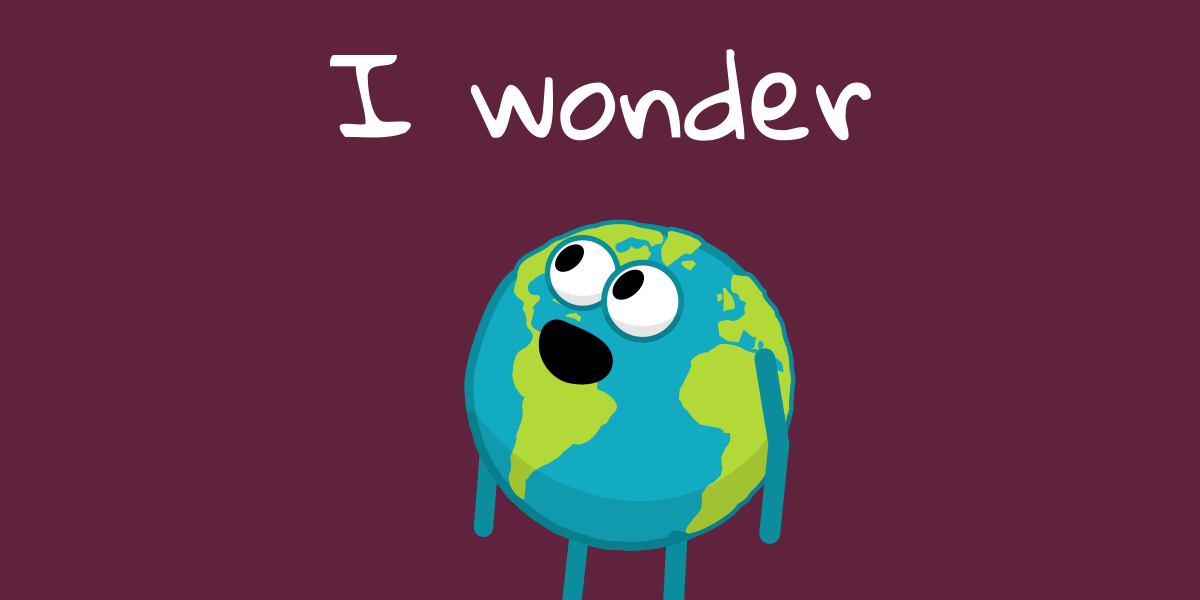
Three archetypes of the curious
An analysis of (Western oriented) historical literature highlights three ways that curiosity shows up:
The Hunter is goal-oriented, focused on specific answers or digging deeply into an increasingly narrow domain
The Busybody finds loose threads of novelty amongst disparate topics; wants to know everything.
The Dancer creatively transcends typically siloed domains by offering new ways to view dogmatically framed information.
Using topological analysis (we’ll skip the gory details, but it is cool4) of the knowledge networks, treating articles as nodes and hyperlinks as edges, they develop a quantitive analysis and a characteristic number (“busybody/hunter score”), to differentiate the curiosity modes5. They find that high hunter scores tend to cluster more, building tighter networks, while Busybodies favor looser networks with larger path lengths.
The curiosity archetype also drives topic diversity and theme. Unsurprisingly, the Hunter exhibits lower information diversity metrics in their foraging than the Busybody in their overall searches. Wikipedia articles are largely organized into a few broad categories: STEM, geography, society, history and culture. Busybodies tend toward culture and geography while Hunters prefer STEM topics.
The Dancer archetype has been harder to pin down, using network analysis, and required the use of novel tools for its understanding. The authors utilized a recent development in semantic analysis called Forward Flow, (FF) developed to quantify large leaps in knowledge space and ultimately predict creativity, as well as mental illness, emotional experience, leadership ability, adaptability, neural dynamics, group productivity, and cultural success. The use of FF framed the users’ temporal movements along the knowledge network in terms of distance in semantic space in contrast to path length via hyperlinks.
They show that FF was also related to information diversity, comparable to the busybody, but importantly, showed little correlation to the busybody/hunter score and less diversity than pure randomness. The dancer was not merely meandering their way into novel insights and could not be explained by network structure alone, rendering FF a unique parameter for curiosity. The authors state that:
curiosity may help allocate attention to information that is neither too complex nor too simple, but to an intermediate “goldilocks”6 amount of information that is conducive to learning… a need for closure may drive a tendency to “seize and freeze” information.
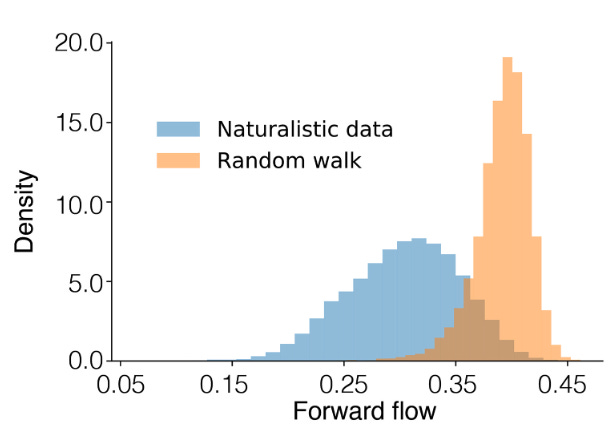
Implications of Curiosity on Society
Equipped with their quantitative analysis, they were able to compare different curiosity metrics with population-wide social characteristics, using Wikipedia pages across different countries and languages. They make no claims about causation but show that the underlying curiosity styles can correlate with positive or negative affect, gender/income/educational inequality and overall life expectancy. The societies with busybodies and dancers, and their looser and more diverse knowledge networks tend to show higher scores in positive mood, equality, well-being, economic stability and education.
Subtle and, of profound underlying impact, they offer an ominous and oracular: “…question of whether the social forces underlying inequality serve to constrain curiosity into hunter-like styles, thereby negatively affecting epistemic well-being.”
Is this a rephrasing of the consequences of simplifying an objective function, in this case, for the acquisition of knowledge? Rote memorization, algorithmic and policed thinking and the maximization of efficient accumulation of information appear to bode poorly for us, whereas an exploration of diverse and disconnected concepts are linked to more robustly functioning societies. In earlier laboratory controlled studies of restrained information gathering on Wikipedia,
Individuals whose foraging was more constrained, due to being more repetitive, reported higher depressed mood (β = 1.06, P = 0.02) and anxiety (β = 1.17, P = 0.02) than individuals whose foraging was less constrained.
Freedom of thought, speech, action and curiosity then may be the requisites for a more just, more egalitarian and happier society. Perhaps the creative and free action of art itself is an expression of retort to the tapering of our intrinsic interests, endemic in the machinery of our modern, “advanced” civilizations?
How does curiosity play a role in your life?
At times it feels that we, who live here in the Bay Area, are burdened with decision, mental and physical fatigue. Parents struggle. It’s ironic that in this resource rich region that includes the wealthiest zip code in the US, we have chosen the relentless hunter as our preferred mode of curiosity, that trends towards STEM (which has given us tremendous capability as a species), but also discontent, inequality, and worsened health outcomes.
…that the practice of curiosity by people experiencing more negative emotions is narrowed; importantly, however, this is not evidence of narrow-mindedness.
Our objective functions might be tailored by diverse influences, but without care they may be constrained by the soil. The implications of the authors’ work suggest that we may want to reconsider, re-evaluate our objective functions. And their work focuses on only one of five dimensions of curiosity: joyous exploration; the other dimensions include social curiosity, deprivation sensitivity, stress tolerance and thrill seeking, all which might come into play as we approach the holiday season.
So what are we questioning and how are we rethinking our objective functions here at LiC?
What role do we play in limiting our own interests? How default are we when we let the unconsidered adventitious algorithms from corporations define them? How should this be applied across groups, including in our own organizations?
Are the creative effects of psychedelics related to the distance between disparate parts of the brain, not connected by “edges” (aka neurons)? Do psychedelics unleash the dancers within us?
In the age of Artificial Intelligence, we have advanced tools for uncovering insight. How might the hidden weights of the algorithms play a role? Will it not be unclear how our curiosity is being curated? Will we fall prey to efficiently, reductively using our AI tools as hunters?
Should raising children be more focused (irony) on play and curiosity, over achievement, as Peter Gray argues for? If indeed their well being and the health of our society is at stake, then yes be my answer.
How do we combat the polarization of our world? Do we need more freedom of thought, speech and interest like Greg Lukianoff of FIRE and the Eternally Radical Idea recommends? How do we facilitate more dancer-like debate?
When we think about information gathering in the mode of other resource accumulation, shall we look to foragers or agrarians, shall we act self-interested or be interested selves? What’s your Emig number?
So a few considerations as you go about your days, as we approach Thanksgiving:
Adam Grant’s counsel for us today and for children tomorrow. My suspicion is that those who have come before us, already knew thus:
And while Adam’s point is well put, it’s not enough to build insight. Wisdom matters and ultimately our actions do too, and this is ever timeless:
And in the end, from our Virgil, our Orpheus, our Rilke here at Lessons in Chimeristry, ahem, our hero Ted Lasso, it’s one thing to be curious about things and events and knowledge. Ted implores us to nurture our curiosity about one another, just as the Gottmans advise between partners, and ourselves. It is a practice; and important and worthy one, one that has large implications if we want to live in a society that is more just, resilient, equitable, healthful and maybe even joyful. That’s a Thanksgiving dinner recipe I’m looking forward to trying. I’ll try to add a dash of Einfuhlung.
I recently met Nanette Wylde, with her partner Kent Manske, who has used encylopedias as an art medium, currently on exhibit in Mountain View. How am I so lucky to bump, randomly, into interesting artists? Maybe a Fables in Community Part 2 here.
Incidentally, I just learned today, that a definitive authority for healthcare information, ironically for skeptics of mainstream institutional medical systems, is reddit. It was noted that there is a massive opportunity to address the care needs of this group. More on this in a future post.
This is a super cool story about twins, collaborating!
They include all sorts of null models, comparisons between laboratory generated and “out in the wild” data and cool statistics. Shannon diversity indices make a showing!
“The metric is the average number of edges, clustering coefficient, and global efficiency minus the characteristic path length”


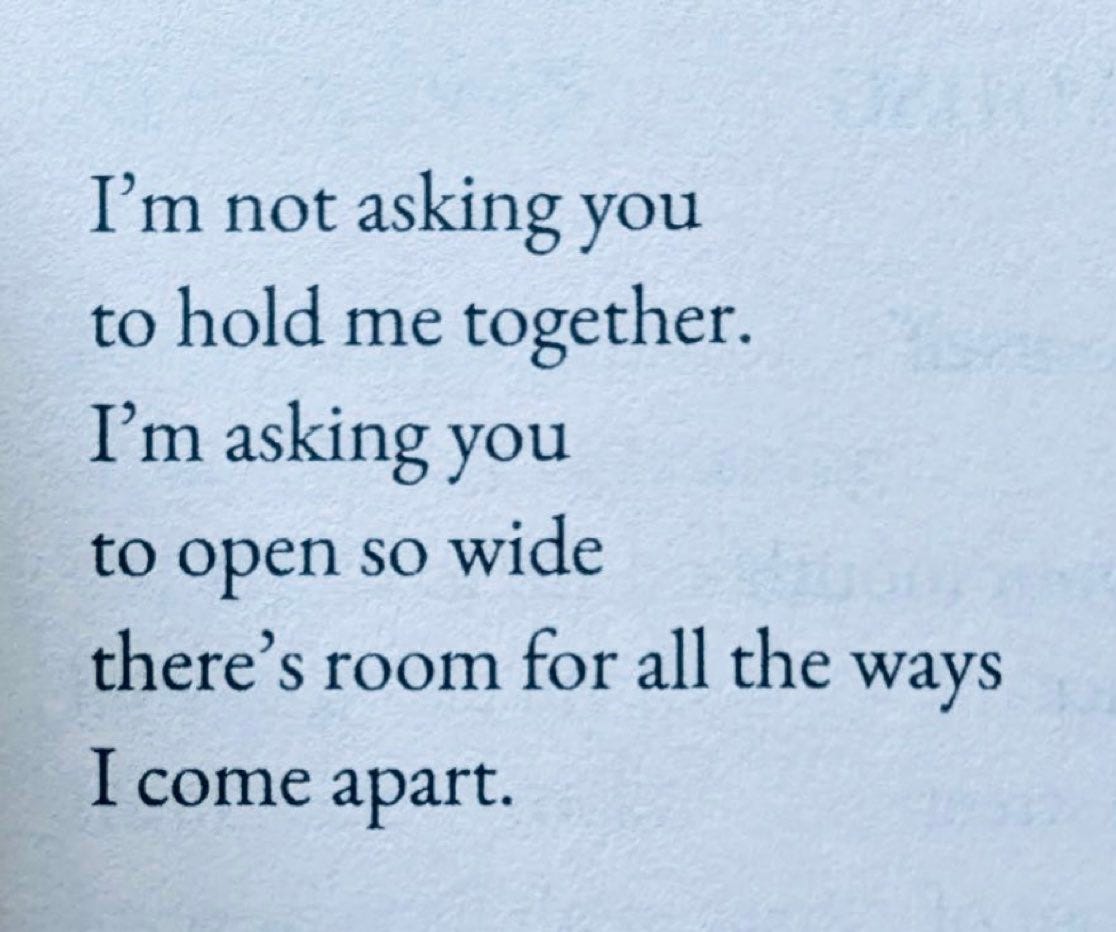
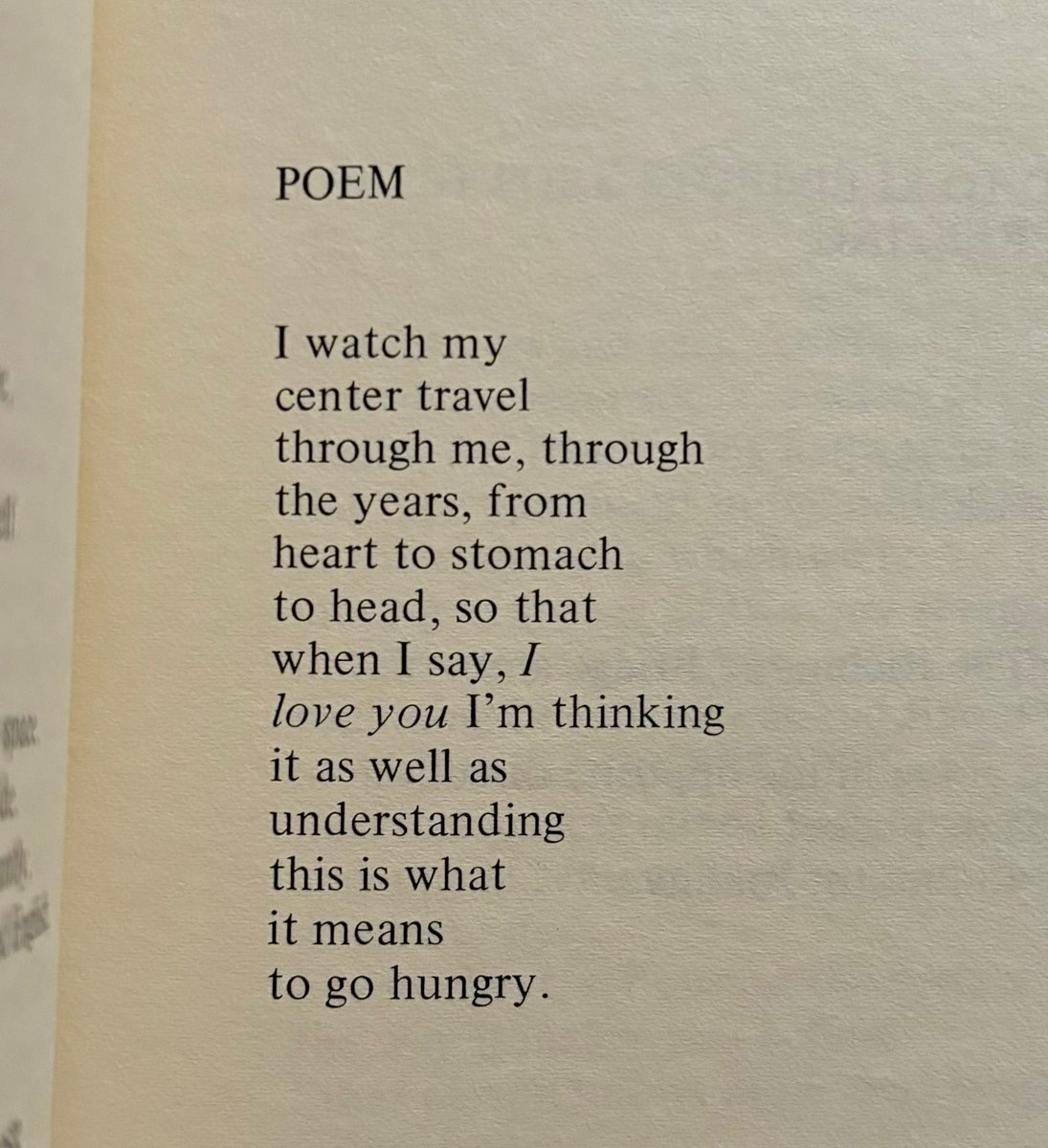
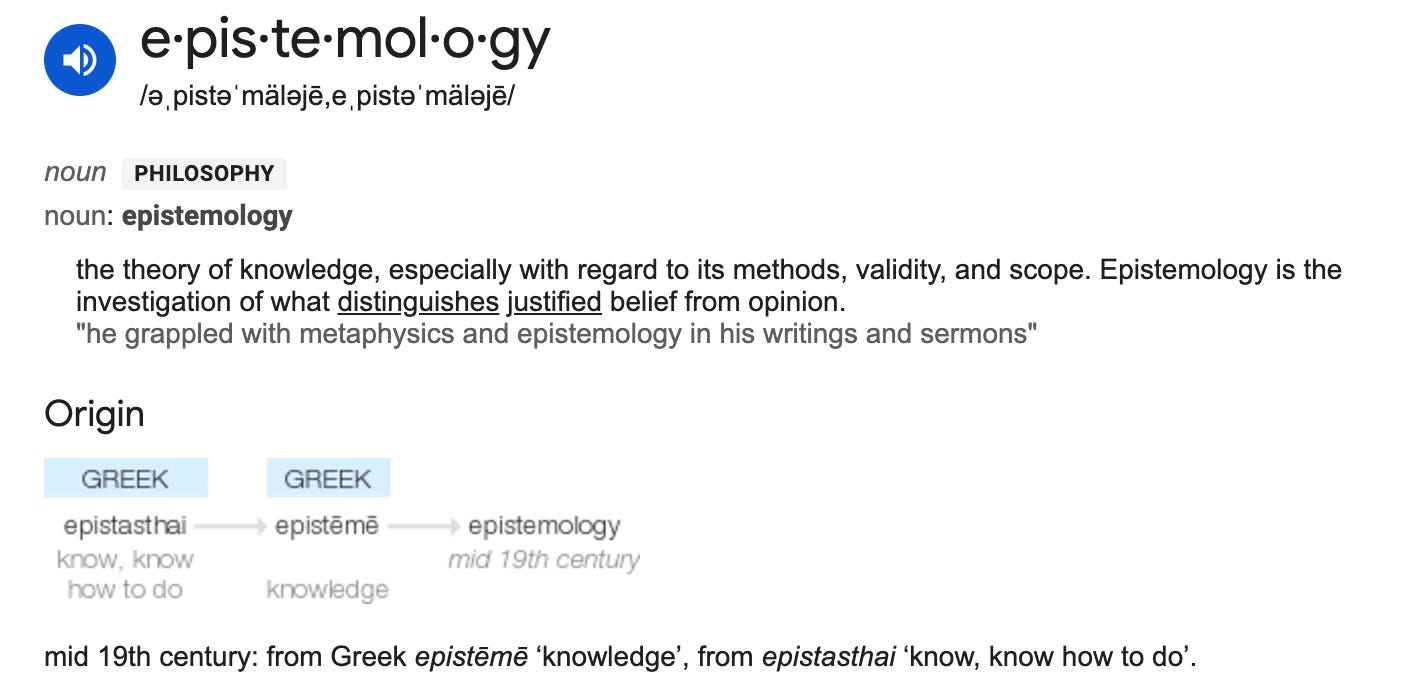
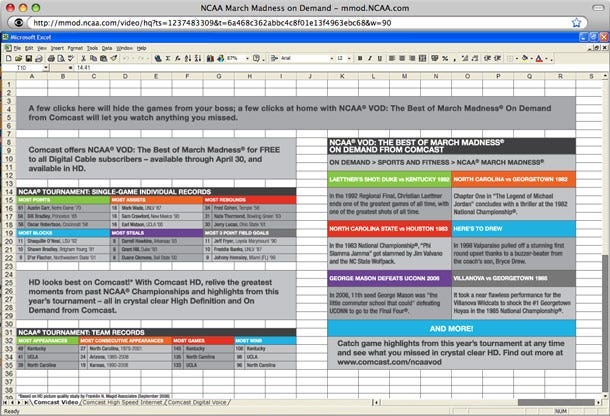
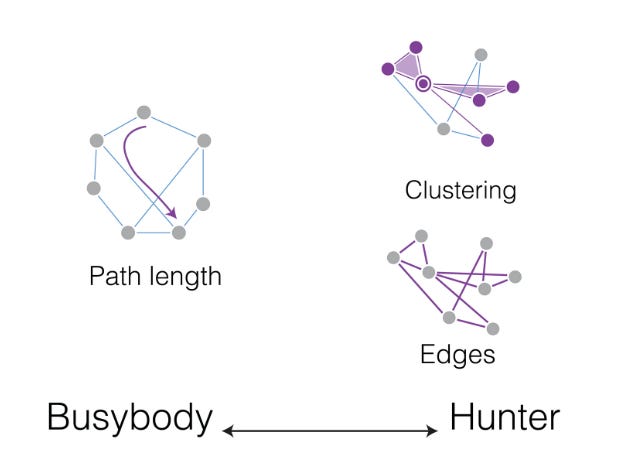
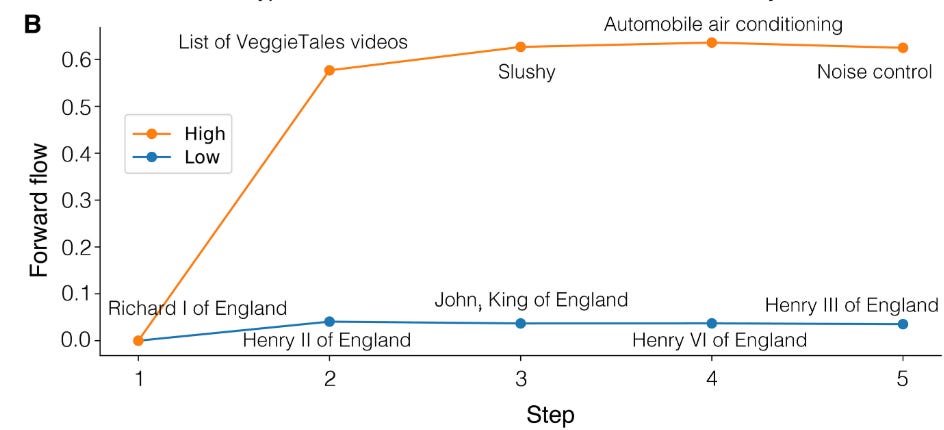
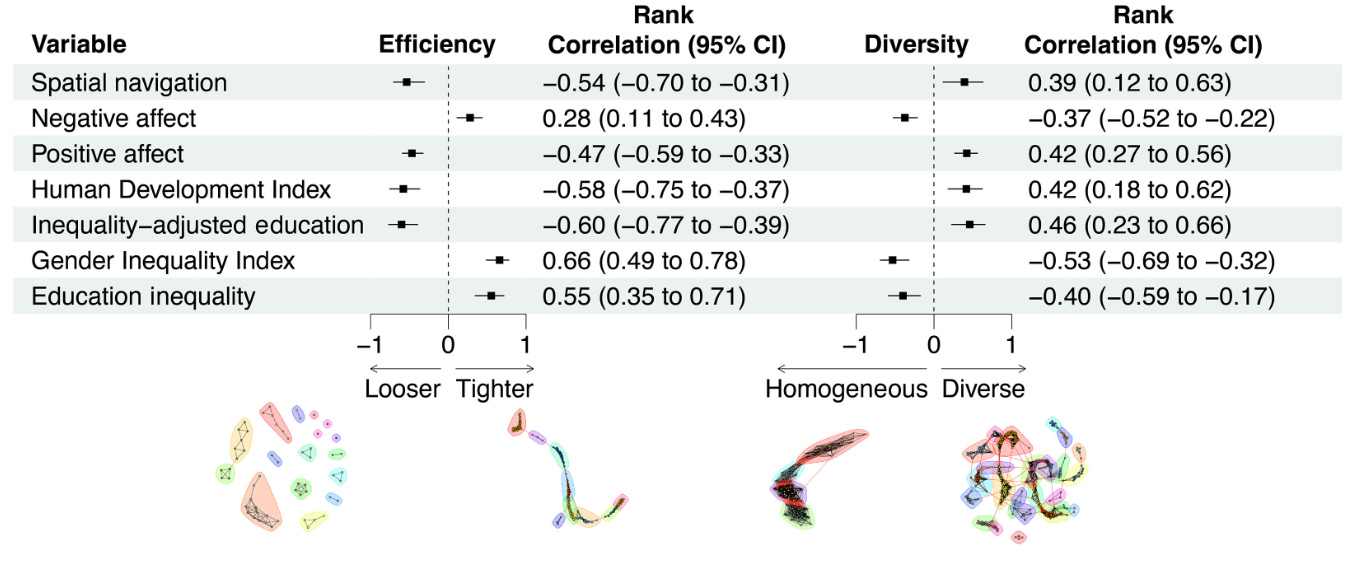
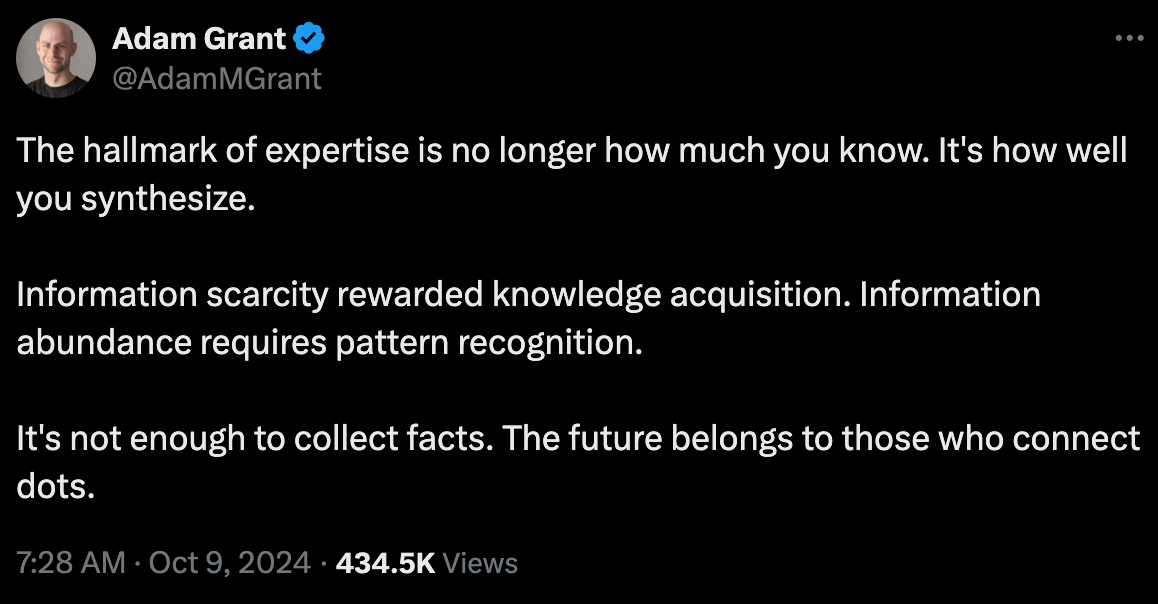
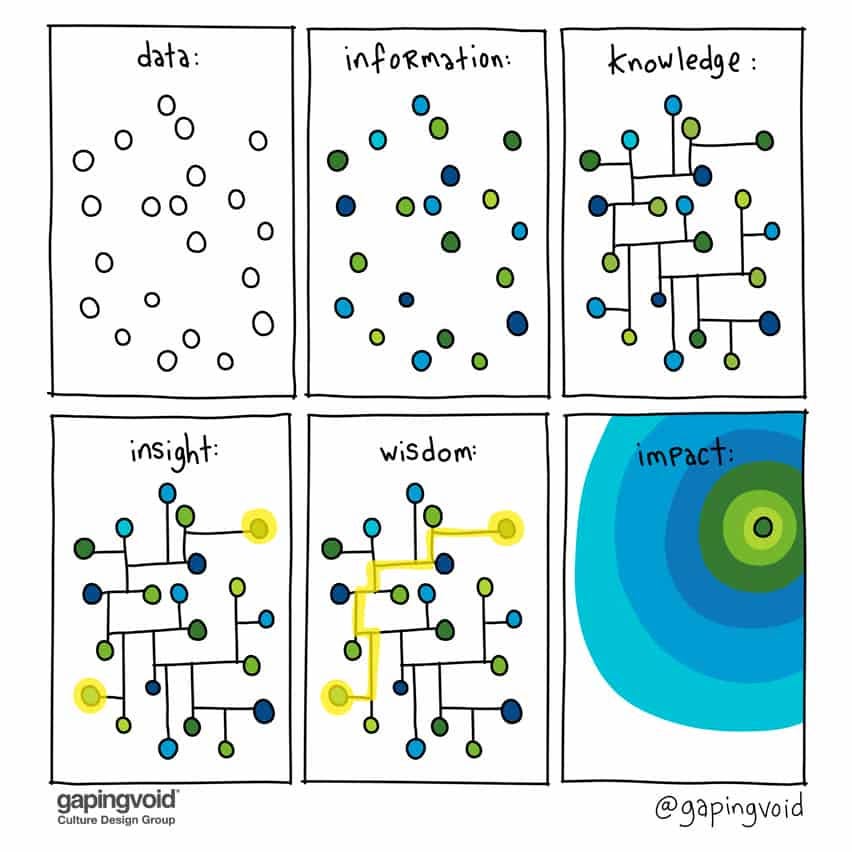
Very interesting Ben … embarrassingly … before I got too deep into your post I was feeling good about just using Wikipedia as a proxy for at least having an interest in accurate information and curiosity to explore the data. Alas … I am certainly a hunter among the paradigms presented.
I was on rec.autos in 1988 (which led to my online business [saabnet.com]) and downloading software from NH<->CA (Stanford's SUMEX-AIM Mac software archive) in 1986 via text-based FTP. Used elm for email and vi for text editing. I still use vi (actually vim now) mostly today for programming.